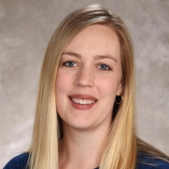Primary care physicians (PCPs) play an essential role in health care. We spoke with Dr. Brittany McArthur, a primary care physician for Evernorth Care Group, for tips in finding the PCP who’s right for you.

Primary care physicians (PCPs) play an essential role in health care, yet patients are increasingly struggling to find (or replace) the doctor they rely on most. PCPs are at the frontlines of the U.S. health care system, from conducting regular checkups to connecting patients to specialists. When the supply of PCPs rises, population health improves, as does health equity.
Supply and demand is a big reason for the growing shortage — the supply of PCPs is dwindling compared to the number of patients who need them. Both groups are aging, and as a result, patients need more care and their doctors are transitioning to retirement. Burnout is another factor. In a recent survey, 79% of PCPs said they were experiencing burnout, a significantly higher rate than the 57% of specialists who reported burnout. Over the next 10 years, the U.S. is expected to experience a shortage of at least 21,000 PCPs, and that number could rise as high as 55,000.
 With those factors in mind, we asked Dr. Brittany McArthur, a primary care physician for Evernorth Care Group in Arizona, for tips in finding the PCP who’s right for you.
With those factors in mind, we asked Dr. Brittany McArthur, a primary care physician for Evernorth Care Group in Arizona, for tips in finding the PCP who’s right for you.
What’s a good place to start when you’re looking for a primary care doctor?
You can reach out to family and friends — I’ve found doctors that way — or post a request for recommendations in small social media groups of like-minded people, such as a non-public Facebook group. Focus on the area around where you live and work. Having a doctor who is nearby removes an obstacle to care, so you’ll be more likely to make an appointment when you need one.
You can call your health insurance provider or check its website for the names of doctors in your area. (Cigna customers can go to Cigna.com and click on “Find a Doctor” at the top of the screen.)
Once you have one or more names, what kind of research should you do?
If you didn’t get the names from your insurance provider, call or go online to make sure the doctors are covered by your plan. A lot of patients also look online for reviews of the doctors they are considering and for information about hospital affiliations and other considerations.
When you find a doctor you think you’ll like, what should you ask the office staff when you call for an appointment?
First, ask whether the doctor is taking new patients. Also ask about the average wait for a first appointment and whether the doctor can usually see a sick patient that day and if not, when.
You should ask about the days and hours the office is open and who else in the office provides care, such as nurse practitioners, physician assistants, and other MDs. Also ask if virtual care is available. In addition, ask or verify the names of hospitals the doctor is affiliated with.
If you have a chronic condition that your PCP will help you manage, you might want to ask if the doctor has experience treating it.
Do you have any suggestions for people who have selected a new PCP but need to visit a doctor before the initial scheduled appointment?
If you are sick or have another acute issue, the office’s nurse practitioner or physician assistant might be able to see you. Their notes from that visit will be in your chart and available to the doctor. Any time your doctor is not available, you can ask to see another doctor in the practice, whether it’s your first time at the office or after you’re an established patient. I work with lots of other physicians, and we see each other’s patients.
Urgent care centers and virtual care, such as MDLIVE, are also convenient alternatives when you need to see a physician quickly. It’s amazing what now can be done virtually — even annual exams.

5 tips for getting the most out of your annual checkup
Having an annual exam can help detect potential health issues early, allowing them to be addressed before they worsen.